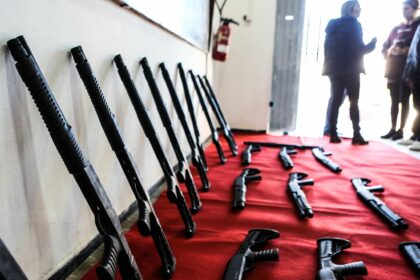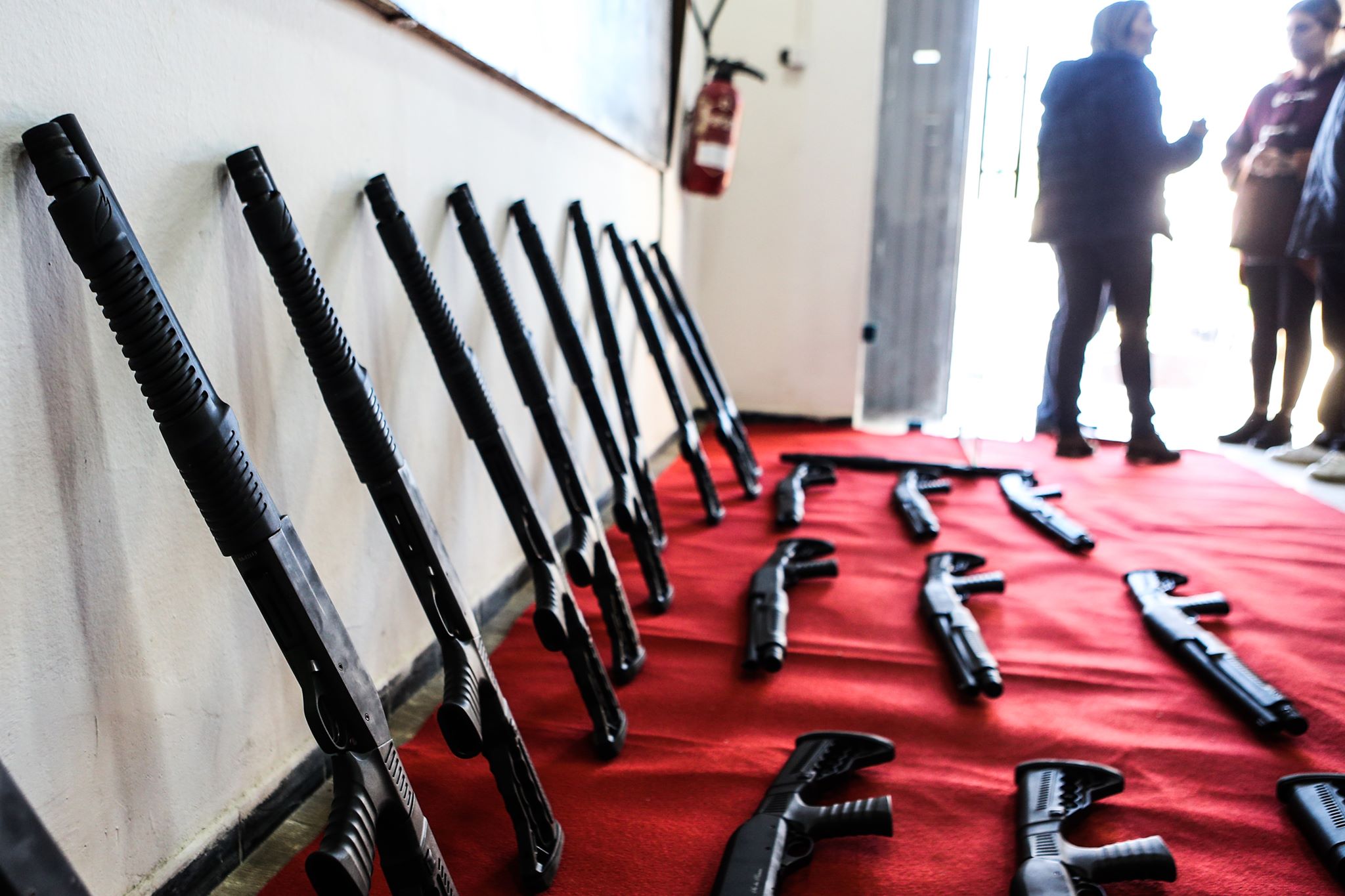 The Tunisian Interior Ministry Wednesday said it has seized arms and cash en route to troubled neighboring Libya from Turkey.
The Tunisian Interior Ministry Wednesday said it has seized arms and cash en route to troubled neighboring Libya from Turkey.
Khaled Hayoun, spokesman for the ministry told local media Shems FM that security forces have seized arms and that investigations revealed that the shipment was coming from Turkey and meant for Libya.
The weapons and a sizeable amount of cash were found in a car in Medenine, South-west Tunisia. Five smugglers have been detained in connection with the seizure, the spokesman said.
Tunisia has found itself under spotlight in the Libyan crisis after Turkey stepped forward as the main international backer of UN-backed Government of National Accord (GNA) headquartered in capital Tripoli.
Ankara has begun deployment of forces to prop up the Tripoli weak government trying to withstand fire from rebel General Khalifa Haftar who is backed by UAE, Saudi Arabia, and Egypt. Haftar launched in April a surprise offensive to take over the Libyan capital.
The office of the Tunisian President Kais Saied early this week said the North African country has refused to be used as transit country for Turkish deployment and logistical support to the GNA.
“Tunisia categorically rejects any foreign interference in Libya, including the Turkish intervention. This is Tunisia’s position from the start, and has not and will not change,” presidential office spokeswoman Rachida Nayfer said earlier this week.
“Tunisia cannot allow this and that the answer of Tunisian President Qais Saied was explicit to Turkish President Recep Tayyip Erdogan during his recent visit to Tunisia,” she added.
During a meeting of the National Security Council Tuesday, President Kais Saied said that “all indications show that the situation in Libya is likely to become more complex”, stressing the need for national preparations for these possible developments to be “adequate”.
Saied voiced hope that the crisis would not degenerate into fighting inside Libya, but stressed that “all indications are that the situation is likely to become more complicated, especially in the light of foreign interference,” TAP news agency reports.
President Saied also brought up the possibility of an influx of refugees, either Libyans or foreigners settled in Libya, as happened in 2011.
In this regard, he stressed the need to “be well prepared for all these developments, which are not only related to security and the possibility of a number of terrorists infiltrating the refugee population in Tunisia, but also to the repatriation of a number of foreigners, who could take refuge on Tunisian soil, as happened in 2011”.
Dealing with developments in Libya requires the involvement of a number of organizations and capitals that will be concerned, whether by the possibility of an influx of refugees, or by the possibility of a number of terrorists infiltrating into Tunisia or from Tunisia to these countries, the President said.
The Tunisian President who stressed the importance of coordinating actions at the regional level, indicated that the necessary security and military precautions have been taken to secure Tunisia’s airspace and coasts, and to safeguard the country’s sovereignty.
The developments in Libya were also discussed at a phone call Monday between President Saied and German Chancellor Angela Merkel.
The two sides renewed attachment to find a peaceful solution to the Libyan crisis, involving all parties concerned, including Tunisia, while affirming commitment to international legality.
Berlin is planning to host an international conference on Libya, aiming to end the ongoing armed conflict in the country and bring the Libyan parties to dialogue.



